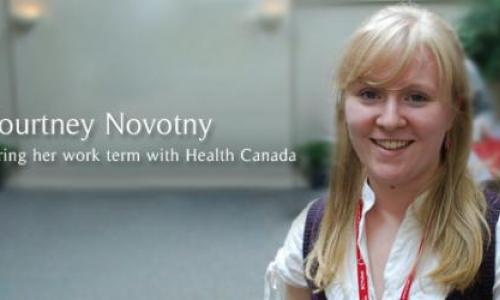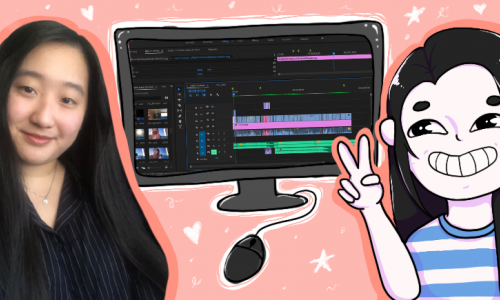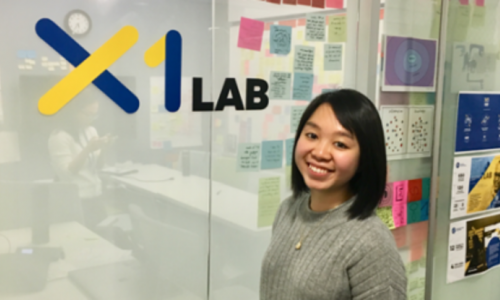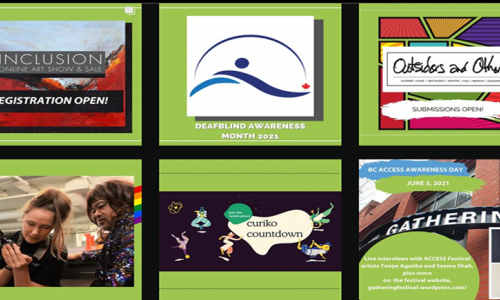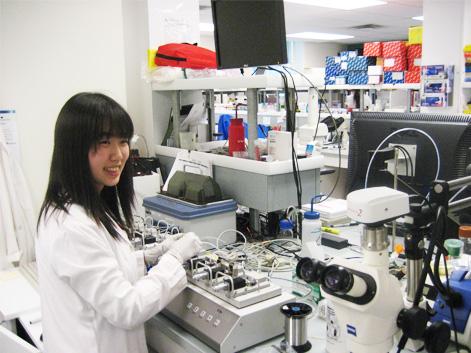
How Did You Join the Co-op Program?
I heard about Co-op back in the day when I was still in high school, during SFU’s recruitment event. The co-op program was actually one of the reasons I chose to come to SFU. I researched more about co-op program requirements during my first year, and as soon as I met the credit requirement, I applied to join, and here I am with two terms completed.
What Does Your Current Co-op Job Entail?
My co-op position was in Dr. Sin’s lab at UBC James Hogg iCAPTURE research center, which specializes in cardiovascular and pulmonary disease research. I have done two Co-op terms there from September 2008 to April 2009.
My main responsibility in the lab was to dissect the mouse aorta and run wire myography to test the function of those dissected aorta. Wire myography is a device that measures the force generated by a contracting muscle. The most difficult and challenging part of this experiment is handling mouse aorta, which is very small and delicate.
My other tasks involved running ELISA (Enzyme-linked immunosorbent assay), data collection, statistical analysis, preparing solutions and drugs, checking up supplies, doing sample inventory, and performing other general laboratory duties when necessary.
What’s the Most Rewarding Part of Your Co-op Experience?
Many aspects of the Co-op experience are rewarding. When I entered Co-op, I had very little knowledge of scientific research, immunology or basic molecular biology. For the first two months or so I was quite overwhelmed by the number of things I have to learn! But it was definitely exciting to see the scientific theories and concepts learned in classes that are being applied in the real world.
I also had the fear of making mistakes during the experiment because lab courses at school really pressure and penalize students not to make any mistakes. However, lab work in the work setting was totally different – it was okay to make mistakes (well, not too many). Often, it was the best way to learn a new technique.
The most challenging yet rewarding experience would be the two oral presentations on my project I had to do in front of a big group of professors, research technicians, and graduate students. The questions were the most difficult part as I had to put the answer quickly in a logical way, and had to admit that I did not know the answer if that was the case. I think it was a good learning experience to have.
Has Co-op Helped to Inform Your Career or Academic Goals?
I feel more motivated to study now. When you can relate your courses to a real-world situation, it makes studying more interesting. In terms of career, it can help you figure out what you are interested in and find new options that you did not consider before. I have never considered doing research or going to graduate school, but after the term, I have started thinking about it.
Would You Recommend Co-op to Other Students?
Definitely. You might think you like something, but you don’t really know until you actually do the work. It’s better to find your interest level in a certain career field on a contract term, rather than getting a full-time job after graduation and discovering that you don’t like it.
I think the Co-op program is very beneficial for any student, as you will gain inside information and contacts in the field, either for your future Co-op placements or work opportunities. Also, it is a good way to build an impressive resume/CV before graduation!









